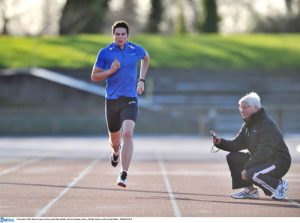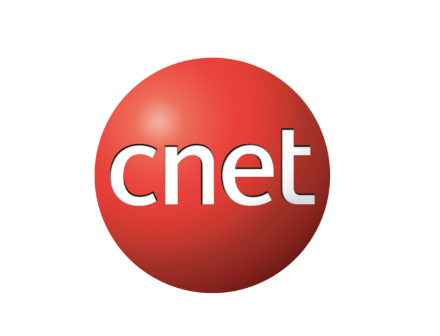Hannah Diaz is a professional soccer player, currently with the Houston Dash. Hannah’s expertise expands to sports nutrition, general fitness, and running. She has coached soccer and conditioning sessions for athletes at many levels. She is a regular contributing writer for Complete Tri.
Runners, cyclists, ultramarathoners, triathletes, and other endurance athletes can sometimes benefit from coaching.
Stagnation is a fear of every athlete, the crippling feeling of a plateau.
Whether you have found yourself feeling flat, want to prevent that feeling, or simply want to see what options you have for improvement, it might be time to hire some help.
So, what are the options?
- Find a local personal coach
- Get coaching through a gym or club
- Virtual or remote coaching
- Using an app or online program
Which coaching option best suits you is the most important. Therefore, first consider:
- Your goals. Your aim may be to improve your fitness, technical skills, mentality, or a combination of all three.
- Your availability. This includes not only location and time boundaries, but also what you can afford.
- Your training preferences. This may take some reflection in order to understand what motivates you, or where you excel. Think of these options as a continuum ranging from in person hands on critique (personal coaching), to strictly informational (online program).
Endurance Athlete Coaching Options
Local Personal Coach
A local, personal coach is one in your community who provides 1:1 coaching for a period of time and has specific knowledge in your sport. They might help you train for an Ironman, for example.
Pros:
- Its biggest attribute is in the name: personal. Having one on one training sessions allows a coach to individualize a program that is not only specific to your abilities, but the physical and mental changes that you endure (example: proper load management by a coach prevents injuries and improves the longevity of an athlete).
- A coach can help you identify your goals and the steps you need to take to reach them. While this can also be done online, a local coach can actually track your progress in person and give you accurate feedback so that you can modify as you need to get over that next hurdle.
- In person training creates mutual accountability, and a commitment will improve the dedication of any athlete. If you have a hard time getting yourself going, or think you are lacking in focus, a personal coach can give you the proper motivation and improve training habits.
- Many triathlon clubs or run or cycling clubs are affiliated with a coach, and may even have a few on the team.
Cons:
- Scheduling could be limiting, because it relies on the flexibility of both parties. If you already have a hard time trying to fit your trainings in, you might struggle to find a coach with the openings you need.
- Gives you the best opportunity to take your abilities to the next level, but does the opposite to your bank account. Sport-specific coaches will charge either hourly or monthly, hourly ranging from $25 to $100 while monthly might look like $40 to $400 (consider your desired training schedule and calculate the hours to find the best deal for you).
Coaching Through a Gym/Club
Many gyms and health clubs — especially the larger ones — have a staff of coaches and personal trainers, and some may be suited to provided specific coaching on your endurance sport.
Pros
- Personalization with many of the same benefits of a local coach. You have an expert by your side for motivation, direction, and peace of mind.
- Real-time critique leads to real-time adjustments. It doesn’t need to be repeated, the quicker you improve, the better.
- Group sessions can spark your competitive drive. Changing up your training to feature other athletes alongside you is extremely beneficial not only for motivation but to test yourself and your progress. Socializing with other athletes is also a good way to create a network to exchange ideas and experiences.
Cons:
- Scheduling window is smaller than some other options. Training times will need to adhere to the hours of operation of the gym staff, normally the average work day. Depending on the frequency you would like to train, and the availability in your schedule, this could diminish your options.
- Limited in the sense that the coaching is dedicated to the location of training (example: a local personal coach is available outside of trainings and in sport-specific environments). This means the communication and relationship aspect of a personal coach is significantly decreased.
- The average rate of a gym coach is $50 per hour. Depending on the frequency of training, it could be similar to a local personal coach.
A great option to note here is to research gyms in your area dedicated to the specific type of athlete you are. For example, a running performance gym will oftentimes have a triathlon coach, optimizing your experience and time spent training inside.
Virtual / Remote Coaching
Virtual and remote coaching is still 1:1, but it is done by someone who is not in your community. These coaches typically have lots of experience doing virtual coaching.
Pros:
- Still holds some of the value of personalized coaching such as accountability, tailored training, and accurate management of stress and load. Because virtual
 coaches are available for daily communication, you can update your coach in real time about any changes or development in your progress.
coaches are available for daily communication, you can update your coach in real time about any changes or development in your progress. - Without a commitment to location, your schedule becomes much more flexible. Depending on the coach you choose, most will provide you with instruction and perhaps have you video yourself doing certain exercises, but outside of that you have the freedom of place and time. Suddenly a busy schedule is no longer an obstacle.
- Because your pool of possible coaches is suddenly broadened, there is a good chance you will find a coach with the exact right experience and focus for you.
- Most virtual training options are as easy as downloading an app, connecting you with a wider range of coaches. Not only is this convenient for finding your best fit, but it also makes the price of a remote coach much more affordable. On average the monthly price range is $35 to $200, depending on the experience of the coach. Don’t be afraid to give a new coach a chance if you feel they are a good fit, they give better price opportunities in order to gain experience.
Cons:
- Not hands-on, therefore no real-time feedback. You will have access to feedback of course, but not real time critique. Changes that could happen in the moment between repetitions or over the course of a training, suddenly take longer just because the information needs to be relayed. There’s also a chance aspects of your performance that need adjusting might fall under the radar of a remote coach.
Generic Online Program or App
More generic online programs are abundant, and may be a good option for some athletes.
Pros:
- An online program is a simple way to introduce structure without having to create yourself. Structure keeps you motivated and saves time wasted in the gym due to no preparation, or the time spent trying to create one yourself.

- Flexibility is the real shining star here. If you are a frequent traveler, or have an unpredictable schedule, using an online program might leave you feeling less stressed while still improving towards your goals.
- These programs have come a long way for cycling, especially if you use one of the many smart trainer apps available. You can have a pretty dialed-in coaching plan based on your specific FTP.
- Online programs are affordable. There are plenty of free training programs for endurance athletes of all types available online, as well as apps that are much cheaper than their coach affiliated counterparts.
Cons:
- While an online program is flexible for a busy schedule, it isn’t for the ups and downs of an athlete. As your body reacts to the training there may be days where the program should be modified to prevent injury, or focus on areas of weakness. This responsibility falls to you when you don’t have a coach to monitor your load for you.
- Program only takes the human experience out of the equation. Without a coach you will have to be confident in your ability to goal set, hold yourself accountable, and create your own network of fellow athletes or information spaces. You will have to be committed to learning more in order to make up for the expertise you might pay a coach for.
Each of these options give you the opportunity to elevate your training no matter your goals, availability, or preferences.







